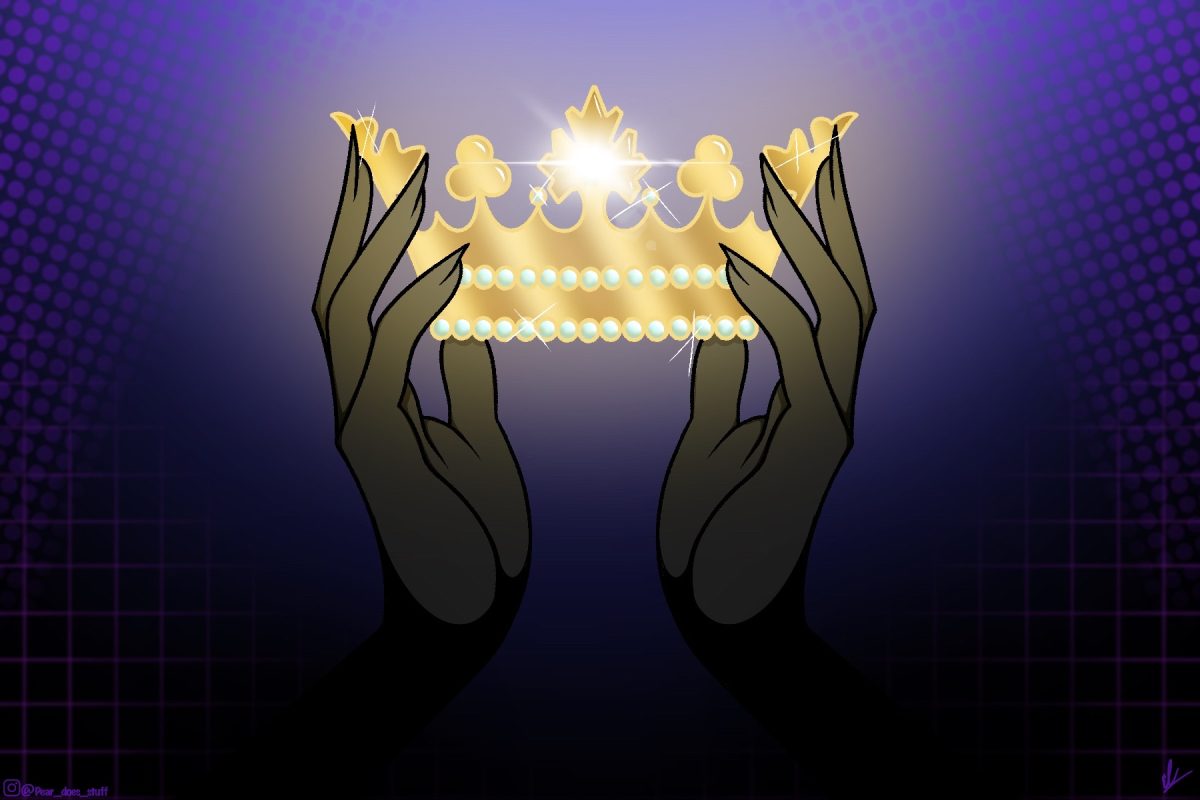Cheslie Kryst’s death highlights broader issues
Communities of color are often overlooked and discouraged from seeking help
Courtesy of Wake Forest
Cheslie Kryst’s death is emblematic of a larger issue around mental health, especially for women of color.
February 22, 2022
On Sunday, Jan. 30, Wake Forest alumna and former Miss USA Cheslie Kryst passed away. Only three months away from turning 31, Kryst’s death was an unimaginable tragedy that rippled through the country. The most concerning aspect of Kryst’s death, however, was not her age when it occurred but the circumstances that led to it. As the nation began to grieve for an inspiring figure who was lost too soon, a magnifying lens was placed over the silent yet pervasive illness that cost Kryst her life: depression.
At age 30, Kryst had achieved success in an impressively wide array of fields. After receiving her Bachelor’s degree from the University of South Carolina, Kryst went on to earn both a Master’s of Business Administration and a Juris Doctor degree from Wake Forest University.
Kryst began working as an attorney in Charlotte, pursuing civil litigation and social justice advocacy, including pro bono work.
Two years later, Kryst entered and won the 2019 Miss USA pageant. Following this accomplishment, she served as a correspondent for the TV program “Extra” while living in Manhattan and making guest appearances on a variety of other shows.
Throughout this time, Kryst’s acclaim grew as her mental health worsened. Kryst’s role as a public figure, while bringing her praise, also exposed her to harsh criticism.
In her writing, Kryst described the effect that negative comments — such as those regarding her appearance and age — had on her mental health, detailing the difficulties that came with her achievements. She described the hollow feeling that possessed her between periods of positive reinforcement as the “unquenchable thirst of insecurity” and expressed her loneliness and longing for assurance of self-worth.
Kryst’s story tragically underscores the growing epidemic of mental health issues in the United States, particularly those that impact women of color. According to the Office of Minority Health in the U.S. Department of Health and Human Services, 10% of Black women feel as though “everything is an effort,” whereas only six percent of white women share the same sentiment.
Black Women’s Health Imperative, an organization dedicated to the mental health of women of color, reports that feelings of sadness, hopelessness and worthlessness have a stronger presence in Black women than in white women. Furthermore, unique conditions exist that can exacerbate the mental health of BIPOC women, namely exposure to racial trauma and challenges involving racism and sexism in all areas of life.
Less than a year ago, as Kryst prepared to enter her thirty-first year of life, she reflected on her triumphs and failures in an essay she shared with the world. Kryst proclaimed that she was continuing to search for “joy and purpose,” an optimistic statement that stood in stark contrast to the other contents of the essay, including a line that declared that her dreams only led to emptiness.
Reflecting on this essay, the signs indicating Kryst’s precarious mental state are apparent. Sadly, these beacons of warning often materialize once the time to intervene has passed, and Kryst’s case was no different.
The impact that Kryst’s story has across the country is an inspiring instance of devastation bringing individuals from all walks of life together. Nevertheless, those in need of help should not wait until an event such as this occurs to begin the conversation regarding mental health and seek out the resources they require.
Destigmatizing mental health and creating an environment in which it becomes a less onerous discussion — specifically in communities of color — is a necessary step in the effort to combat this ever-prevalent issue. Those struggling should also be reminded that there is no threshold of suffering for which pursuing professional help is not warranted.
Each and every mental health condition and subsequent symptom is deserving of attention, and individuals in need should not wait until they reach “rock-bottom” to justify extending a hand for help.
On the morning of her death, Kryst posted a photo along with a caption that read “may this day bring you rest and peace.” Beyond the lives she touched, represented and inspired, Kryst’s legacy lives on in those continuing to advocate for more comprehensive mental health services and the hope that prevails in even the darkest of times.
This story was originally published on Old Gold & Black on February 17, 2022.





























![IN THE SPOTLIGHT: Junior Zalie Mann performs “I Love to Cry at Weddings,” an ensemble piece from the fall musical Sweet Charity, to prospective students during the Fine Arts Showcase on Wednesday, Nov. 8. The showcase is a compilation of performances and demonstrations from each fine arts strand offered at McCallum. This show is put on so that prospective students can see if they are interested in joining an academy or major.
Sweet Charity originally ran the weekends of Sept. 28 and Oct. 8, but made a comeback for the Fine Arts Showcase.
“[Being at the front in the spotlight] is my favorite part of the whole dance, so I was super happy to be on stage performing and smiling at the audience,” Mann said.
Mann performed in both the musical theatre performance and dance excerpt “Ethereal,” a contemporary piece choreographed by the new dance director Terrance Carson, in the showcase. With also being a dance ambassador, Mann got to talk about what MAC dance is, her experience and answer any questions the aspiring arts majors and their parents may have.
Caption by Maya Tackett.](https://bestofsno.com/wp-content/uploads/2024/02/53321803427_47cd17fe70_o-1-1200x800.jpg)
![SPREADING THE JOY: Sophomore Chim Becker poses with sophomores Cozbi Sims and Lou Davidson while manning a table at the Hispanic Heritage treat day during lunch of Sept 28. Becker is a part of the students of color alliance, who put together the activity to raise money for their club.
“It [the stand] was really fun because McCallum has a lot of latino kids,” Becker said. “And I think it was nice that I could share the stuff that I usually just have at home with people who have never tried it before.”
Becker recognizes the importance of celebrating Hispanic heritage at Mac.
“I think its important to celebrate,” Becker said. “Because our culture is awesome and super cool, and everybody should be able to learn about other cultures of the world.”
Caption by JoJo Barnard.](https://bestofsno.com/wp-content/uploads/2024/01/53221601352_4127a81c41_o-1200x675.jpg)













